With interesting avenues opening up in today’s dynamic business landscape, it becomes highly essential to stay relevant and competitive. This hinges on employing effective agile processes, consistent decision-making, and an unwavering alignment with organizational goals. Business rules serve as the cornerstone for achieving these critical objectives. So, what are business rules and how effectively they bring about a gradual revolution to the current day businesses?
Business rules are the logical instructions that define or constrain business operations to provide a seamless experience. They play a crucial role by ensuring that all systems, workflows, and decisions impact the businesses in a positive and resourceful way. In a gist, business rules help maintain consistency, reduce potential errors, and enhance the overall efficiency of the businesses.
Business Rules in a Nutshell
Business rules are explicit and tacit statements that describe the operations of a business. They provide necessary constraints to streamline the operations of the business systems. They dictate the terms on how decisions are made, processes are executed, and transactions are handled within an organization. Here’s how a simple example of utilising business rules within a functioning bank:
“Customers must be at least 18 years old to apply for a loan”.
This simple business rule governs the age eligibility criteria in the lending process. By putting this on motion, banks can easily streamline the loan applications they receive.
Types of Business Rules
Understanding the different types of business types of business rules is crucial for optimising operations, minimizing risks, and ultimately achieving the goals of the business.
- Formula-Based or If-Else Rules
These rules involve calculations or logical conditions to determine all possible outcomes. They are commonly used in scenarios where decisions are made based on specific numerical or logical criteria. Formula-based rules are foundational to many automated systems, as they provide clear, deterministic outputs for given inputs.
Example: “If the total purchase amount exceeds Rs. 4000, apply a 10% discount.” This ensures that discounts are app;ied consistently without requiring manual intervention. These rules are particularly beneficial in financial systems, where precise calculations drive important decisions.
Some of the rules that are categorized under this type include:
Derivation rules generate new information or values based on existing data. Here’s an example: “Calculate the total order value as the sum of item prices multiplied by their quantities” ensures accurate pricing calculations. This type of rule is crucial for maintaining transparency and accuracy in billing systems.
- Decision Table Rules
Decision table rules use a tabular format to represent complex decision-making scenarios. Each row in a decision table represents a unique combination of conditions and corresponding actions, making it easier to visualize and manage complex magic.
Example: A decision table for loan approvals might list combinations of credit scores, income levels, and existing debts to determine eligibility. By organizing rules this way, businesses can ensure that all possible scenarios are accounted for. By employing a decision table the possibility of risks or incurring errors are significantly reduced.
Here’s an example of a business rule that is housed by Decision Table Rules:
Validation rules check data against some of the predefined criteria and often involve multiple conditions while verifying. For instance, “An application is valid if the applicant’s age is above 18, credit score is over 700, and income exceeds Rs. 20,000” requires a structured approach to ensure standard compliance. Using a decision table allows businesses to manage and review these criteria efficiently while making clear decisions.
- Use Case-Based Rules
Use case-based rules are specific to particular business scenarios and guide the execution of tasks within a context that is defined and already established. These rules often incorporate business policies, ensuring that the tasks are carried out according to the guidelines.
Example: A rule that states, “Only managers can approve discounts greater than 20%.” This ensures that high-value decisions receive appropriate attention and also aligns with the company’s strategic goals.
Here are some of the widely used rules under this category:
These rules enforce specific conditions or restrictions within a business process. For example, “A user cannot proceed to checkout without selecting a delivery address” ensures that the system collects essential information before completing a transaction. This prevents errors or incomplete orders, enhancing customer satisfaction.
Workflow rules define how tasks are executed and assigned within a process. For example, "Escalate unresolved customer complaints to a supervisor after 24 hours" ensures timely resolution of issues, improving customer retention and operational efficiency.
Why are Business Rules Important?
Business rules typically serve as the backbone of decision-making processes. This enables organizations to operate with precision and predictability.
Business rules ensure that decisions are made uniformly across different teams and systems. This ultimately ensures lower risk probabilities and less possibility of errors. Business rules adhere to industrial regulations and internal policies which comes in handy to organizations when avoiding any legal and financial penalties.
Automating repetitive tasks with predefined rules saves time and reduces the workload for employees, allowing them to focus on higher-value activities. Rules enable customised and accurate service delivery, ensuring that customers receive reliable experiences.
For example, in financial services, business rules ensure that loan approvals, risk assessments, and necessary compliance checks are carried out systematically and precisely.
Benefits of Business Rules
Business rules are the building blocks of any successful organizations. So, it’s common to wonder why. Well, here’s a detailed list of advantages of business rules:
- Consistency: Utilizing business rules provides a standardized approach to decision-making, ensuring uniformity across all processes and systems. For instance, a rule that specifies “All invoices must be paid within 30 days” ensures that payment terms are consistently watched and applied.
- Efficiency: Business rules help organizations to save time and streamline routine processes that reduce manual efforts. This also significantly lowers the possibilities of errors. For example, automated fraud detection rules in banking systems can flag suspicious transactions instantly, reducing the need for repeated manual reviews.
- Flexibility: Business rules can be easily updated to reflect changing regulations or business needs. This adaptability allows organizations to respond quickly to market changes or new regulatory requirements.
- Scalability: As businesses grow and evolve into the dynamic outlook of today, managing processes manually becomes impractical. Business rules provide a scalable solution that can handle increasing complexity without needing to compromise on efficiency.
- Regulatory Compliance: Business rules incorporate necessary and vital compliance checks into their processes. For example, “All customer data must be individually encrypted” greatly aligns with data protection laws.
Examples of Business Rules
Business rules extend their versatility to various sectors. Here are some of the industries where employing business rules have effectively transformed the operations of the businesses.
Retail
- Dynamic Pricing: Business rules adjust the prices of the products based on factors like demand, competition, and inventory levels. This virtue ideally assists in bringing forth an effective dynamic pricing strategy. For example, “If the demand for a product surges by 30%, increase its price by 10%.” This rule helps retailers to maximize their revenue during peak demand periods. By applying such rules, the retailers also align their pricing strategies with current market conditions.
Learn more about dynamic pricing here.
- Discount Approvals: By incorporating the priority factor, business rules can streamline internal processes that could otherwise eat up a significant amount of time. For example, “Store managers can approve discounts of up to 20%; higher discounts require regional manager approval. This ensures that any changes in price adjustments are carefully monitored all while balancing competitiveness with profitability.
Subscription Services
- Customer Segmentation: Business rules help group customers based on their preferences, purchase history, or subscription tier. For instance, “Premium members receive priority support and exclusive content.” By segmenting customers, businesses can provide tailored services that enhance customer satisfaction and loyalty.
- Personalization: Keeping in mind what the customers prefer, the rules provide targeted recommendations. For example, “If a customer watched three movies in the 'Action' genre, recommend similar titles.” Personalization boosts engagement, retention, and overall customer experience.
Banking and Real estate
- Loan/Application Approval: Upon considering eligibility criteria based on credit score, income and debt-to-income ratio, the business rules in play help assessing the applications. For instance, “Approve loans for applicants with a credit score above 700 and a debt-to-income ratio below 40%.” This rule follows through the lending decisions and ensures that it is consistent.
Insurance
- Premium Calculation: The defined business rules determine the premiums based on factors like age, medical history, and coverage type. For example, “If the policyholder is below 25 years old, apply a 10% surcharge." Accurate premium calculations help maintain profitability and fairness in pricing.
- Fraud Protection: Instead of repeated manual reviews, employing business rules will flag suspicious claims for review in a short period of time. “If a claim is submitted within 30 days of policy activation, mark it for investigation." This rule safeguards company resources by identifying potential fraud in the early stages.
Relationship Between Business Rules and Process Automation
Business rules act as a strong pillar of process automation. These rules define the logic that primarily drives automated workflows. By successfully incorporating business rules into automation problems, your company can enhance your operation.
Automating repetitive tasks based on a set of predefined rules that reduces duplication of manual effort and ensures consistency throughout. Automated systems execute business rules without human error, ensuring precise outcomes every time. With low-code/no-code platforms like Nected, updating business rules to reflect market changes becomes seamless. This ensures that processes remain aligned with current requirements. Automated workflows powered by business rules can handle increased workloads as businesses grow, ensuring uninterrupted service and efficiency.
For example, in customer service, workflow rules can automatically route tickets to the appropriate department based on issue type and priority. In manufacturing, business rules can ensure that quality control processes are consistently applied at every production stage.
By leveraging tools like Nected, businesses can design fully customizable workflows that integrate seamlessly with existing systems thereby driving efficiency and innovation.
Conclusion
Business rules are essential for any organization seeking to operate efficiently. From dynamic pricing strategies in retail to fraud prevention in insurance, business rules provide the framework for sound decision-making and streamlined operation in every industry.
By automating repetitive tasks and decision-making, Nected frees up valuable time and resources, enabling teams to focus on more strategic initiatives. Nected's flexible platform enables businesses to quickly adapt to changing market conditions and customer demands, ensuring they stay ahead of the curve. Nected's scalable architecture can evolve with your business, by accommodating increasing volumes of data and transactions without compromising performance and efficiency.
Adopting Nected’s rule-based systems to build customizable and automated workflows will drive success for every business.
Frequently Asked Questions
What are business rules?
Business rules are specific guidelines or constraints that govern how a business operates. They ensure consistency, accuracy, and compliance within business processes.
Why are business rules important?
Business rules help improve efficiency, maintain consistency, reduce potential errors and enhance regulatory compliance. They ensure that businesses are benefited from employing such rules into their operations.
What are some challenges in managing business rules?
There are some significant challenges to account for while dealing with business rules. They include the need for integration, managing complexity of the business, and testing rules to prevent consequences. With essential guidance these challenges can be mitigated effectively.
How can business rules be implemented?
Business rules can be implemented using various tools and techniques including, business rule management systems (BRMS), embedding with programming languages, integrating into workflow engines to control decision-making.
What are some common mistakes businesses make when implementing business rules?
Some common mistakes include failing to adequately define and document rules, and overlooking the potential impact of rules on existing systems and processes. To avoid these pitfalls, businesses should invest in proper planning, communication, and testing.



.png)
.svg)
.webp)

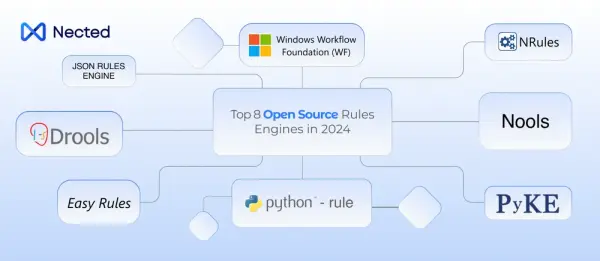



.webp)
.svg)
.webp)
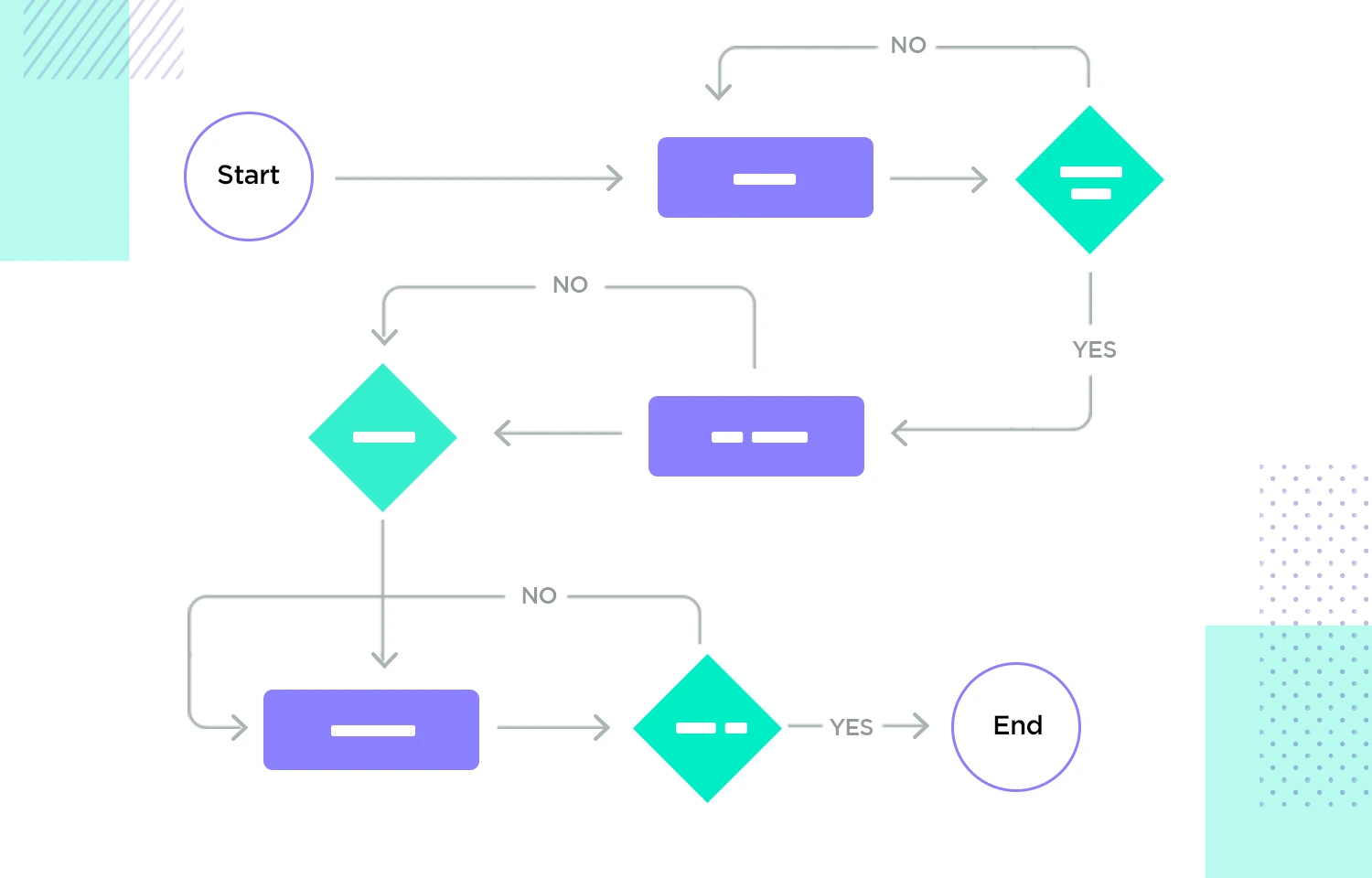
.webp)

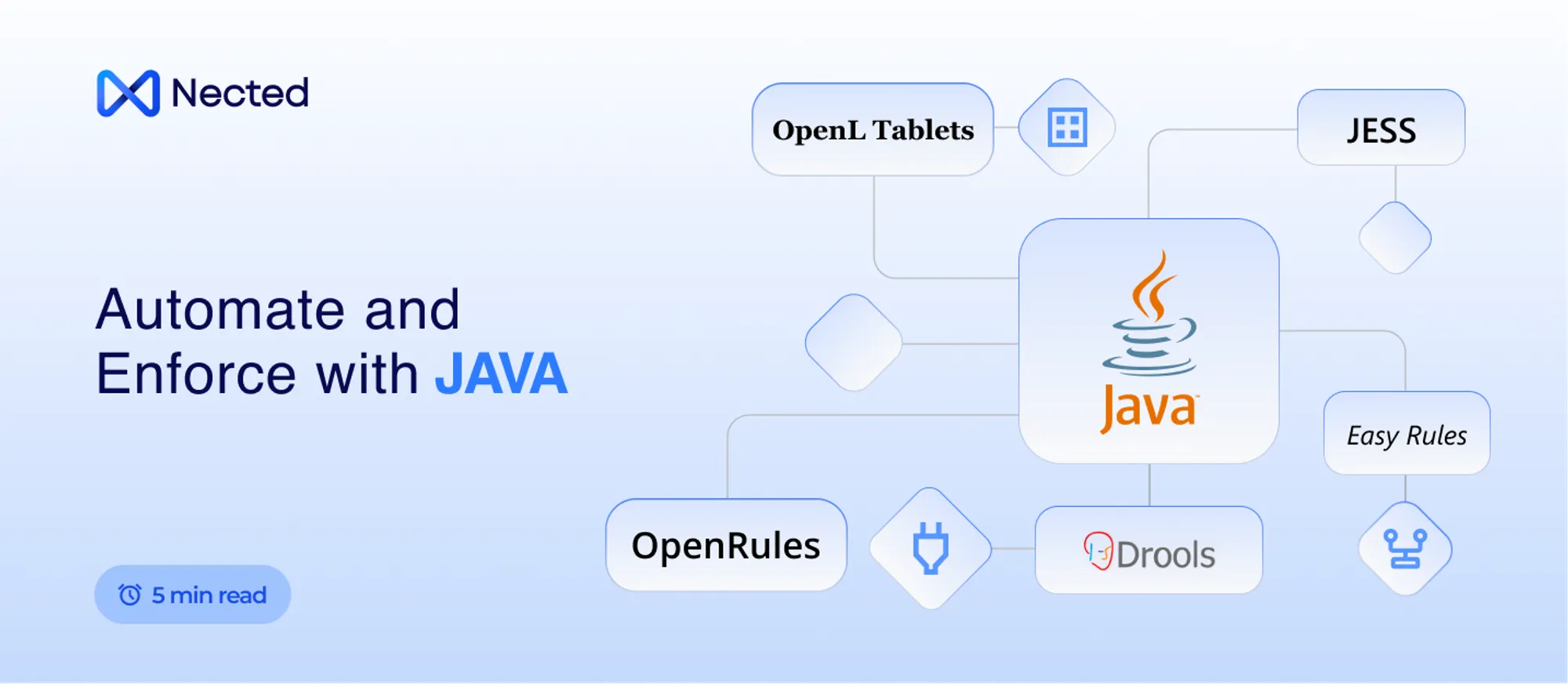

.webp)



.webp)

.svg)
.webp)




.webp)

.svg.webp)
.webp)
.webp)






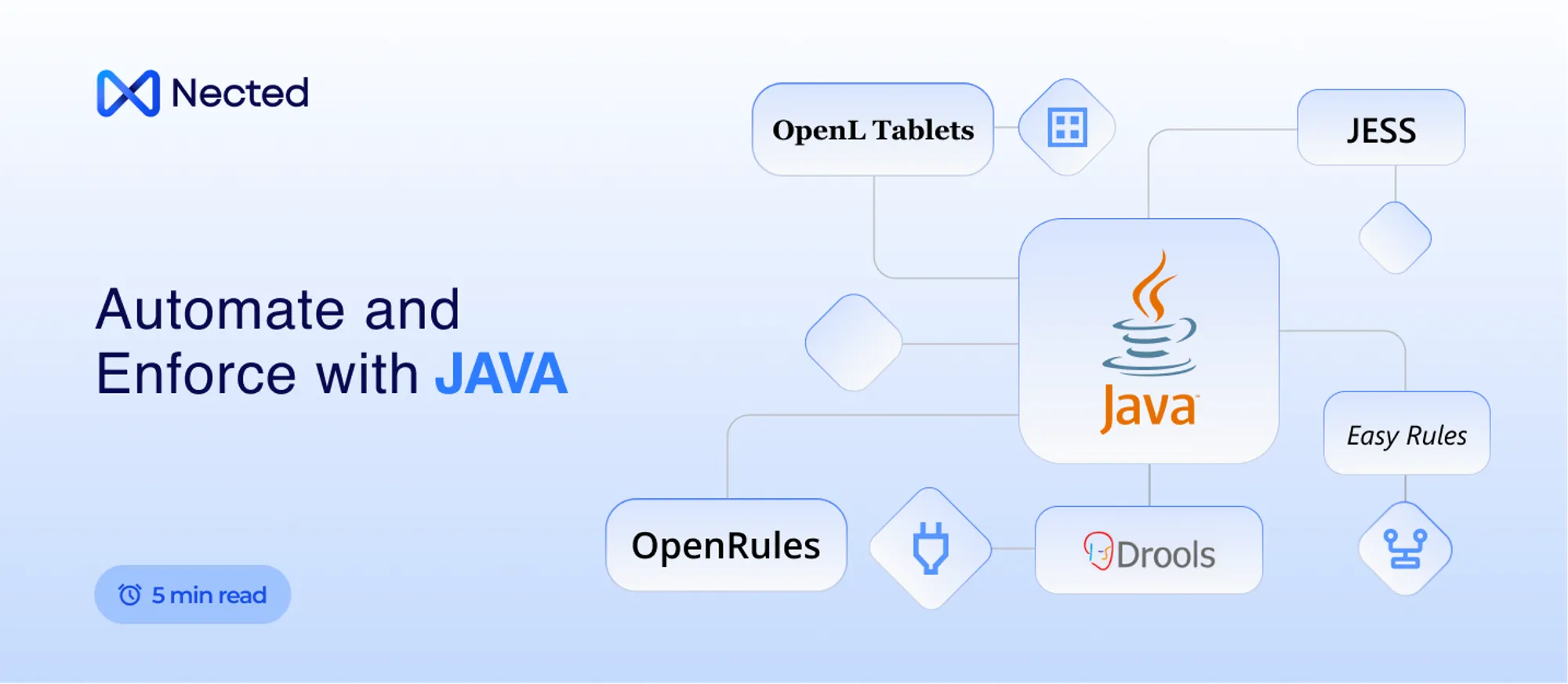


.webp)

%20m.webp)
.webp)
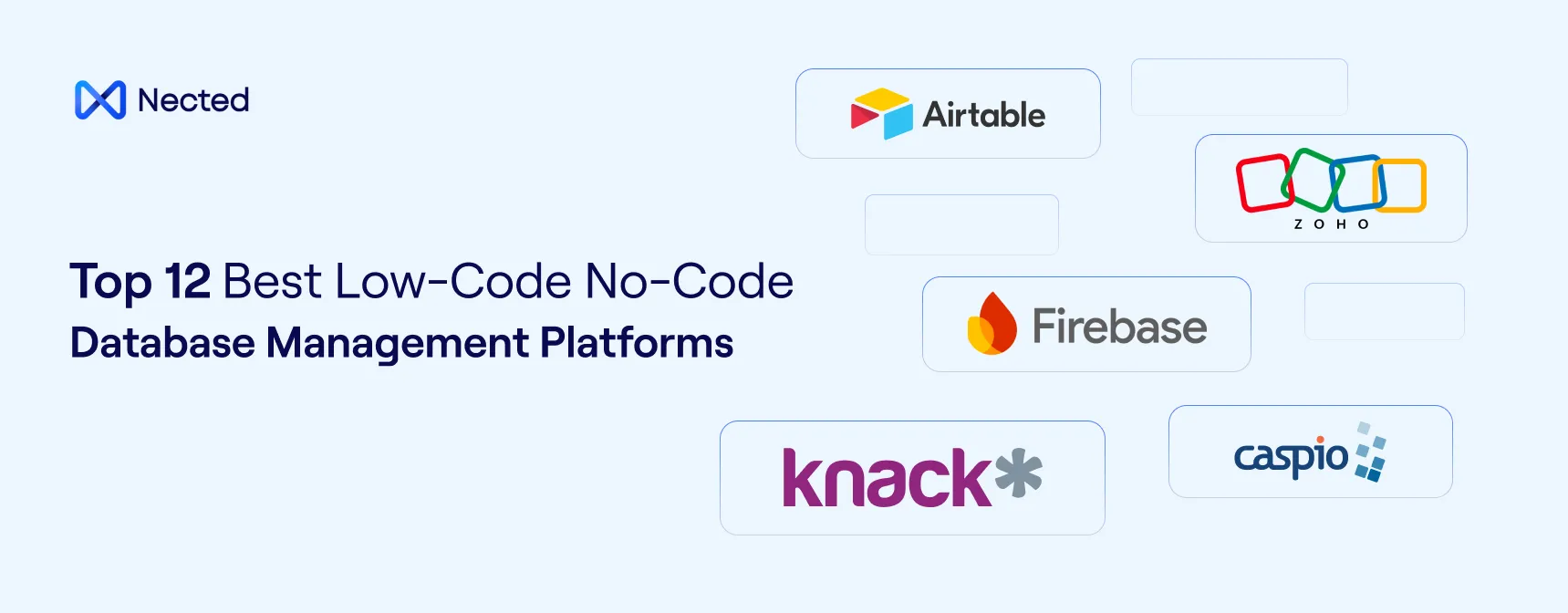




.webp)





%20(1).webp)
